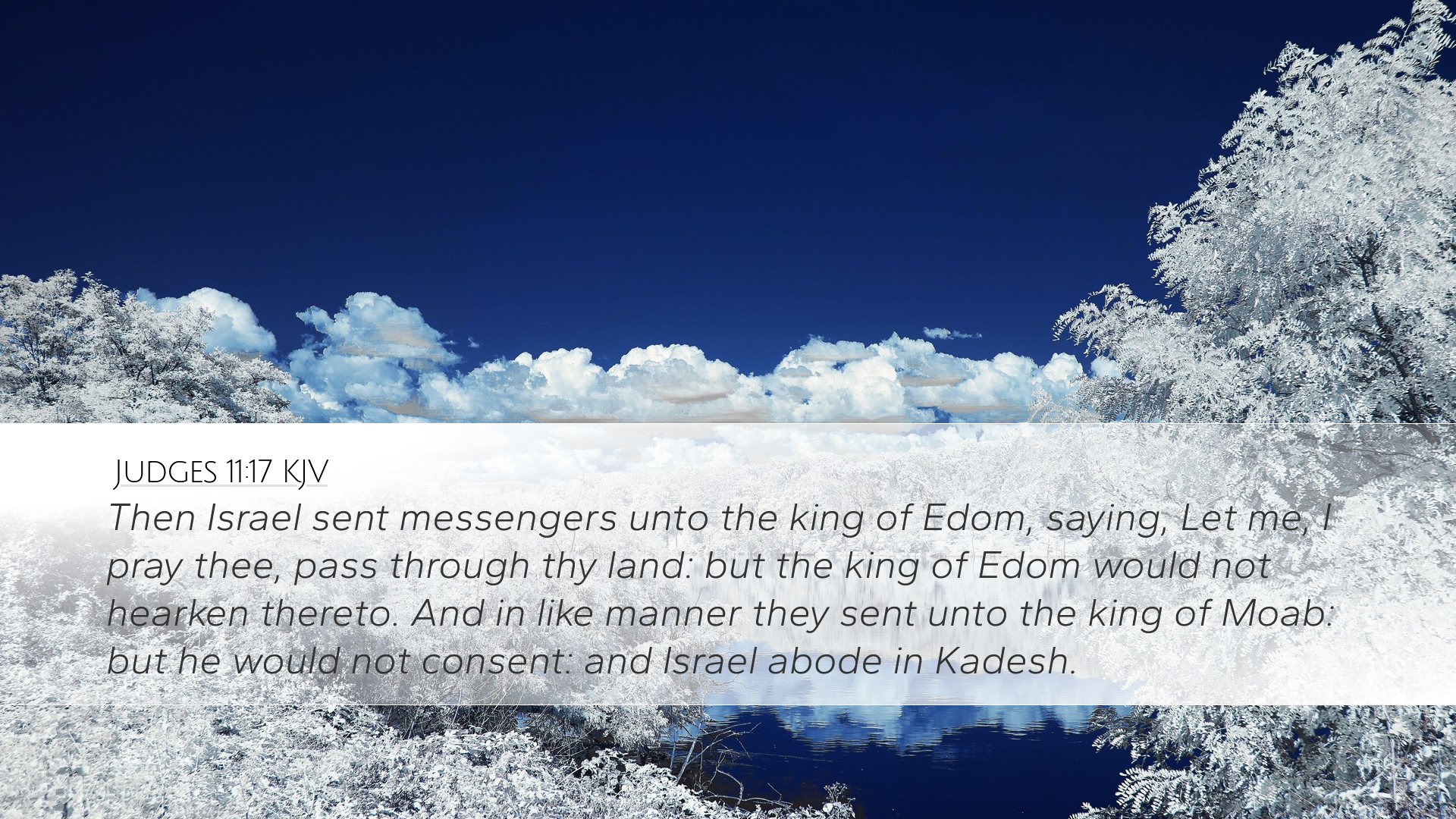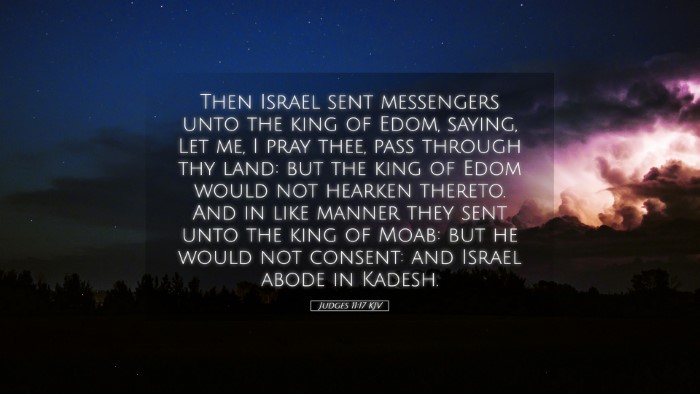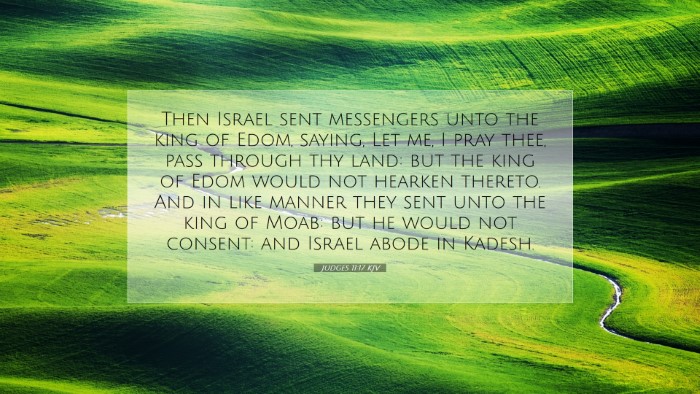Commentary on Judges 11:17
Verse Analysis: Judges 11:17 states, "Then Israel sent messengers to the king of Edom, saying, 'Let me pass, I pray thee, through thy land.' But the king of Edom would not hearken thereto. And in like manner they sent unto the king of Moab: but he would not consent. And Israel abode in Kadesh."
Historical Context
The backdrop of Judges 11:17 illustrates a pivotal moment in Israel's history as they aimed to navigate through hostile territories. During this time, the Israelites were wandering in the wilderness after their exodus from Egypt and were trying to make their way to the Promised Land. Edom and Moab were significant neighboring nations, descendants of Esau and Lot, respectively. The request to traverse these lands signifies Israel's dependence on other nations and the unity they sought while still in a nomadic state.
Theological Insights
In reading this verse, one reflects on the themes of rebellion and peaceful coexistence. Israel’s plea represents a desire for peaceful passage, highlighting their intention to avoid conflict and cooperate with neighboring lands. However, the refusal by the two kings brings into focus the stubbornness and hostility that often pervaded Israel's relationships with their neighbors.
Matthew Henry's Perspective
Matthew Henry emphasizes the importance of Israel's negotiations and their intent to avoid battle while seeking a pathway to their destination. He notes that even despite their divine backing, Israel was still bound by a need to seek the cooperation of others. This illustrates a critical aspect of leadership and governance; there are moments when peaceful resolutions should be prioritized over conflict. Henry also highlights how God's providence may allow certain adversities, such as the refusal from Edom and Moab, to shape a stronger national identity.
Albert Barnes' Commentary
Albert Barnes provides an analytical approach, interpreting the implications of the refusal from Edom and Moab. He suggests that this rejection reflects broader themes of human agency and the consequences of Israel's past actions. Barnes notes, "Edom's refusal signifies how past animosities can influence present circumstances." He also points out the divine paradox of Israel's history; despite God's promises, they must still contend with human opposition.
Adam Clarke's Insights
Adam Clarke focuses on the character of the leaders of Edom and Moab and their motivations for refusal. Clarke suggests that they were influenced by historical grievances against Israel, particularly relating to the time of the Exodus. He argues that such sentiments reveal human nature's inclination towards bitterness and grudges. Clarke further elucidates how these interactions foreshadow future conflicts and alliances that would shape the nation of Israel.
Practical Applications
The events encapsulated in Judges 11:17 serve as a rich tapestry for modern applications:
- Pursuit of Peace: This verse teaches the importance of seeking peaceful resolutions in our dealings with others. Just as Israel sought to pass through neighboring lands without conflict, so too should we strive to find amicable solutions in our lives.
- Understanding Opposition: We must recognize that sometimes, despite our best intentions, we may face rejection or hostility from others. This can prepare us for challenges and shape our character, much like for the Israelites.
- Divine Sovereignty: The narrative underscores the sovereignty of God even amid human conflict. While the Israelites faced opposition, they were still under God's watchful care as He would ultimately lead them to their destination.
Conclusion
The commentary on Judges 11:17 serves as a profound reminder of the historical intricacies of Israel's journey, a reflection of the human condition, and a call toward seeking peace and understanding in our relationships today. Through insights from Henry, Barnes, and Clarke, we have been able to glean not only the historical and theological significance of the verse but also its applicability to our lives.


